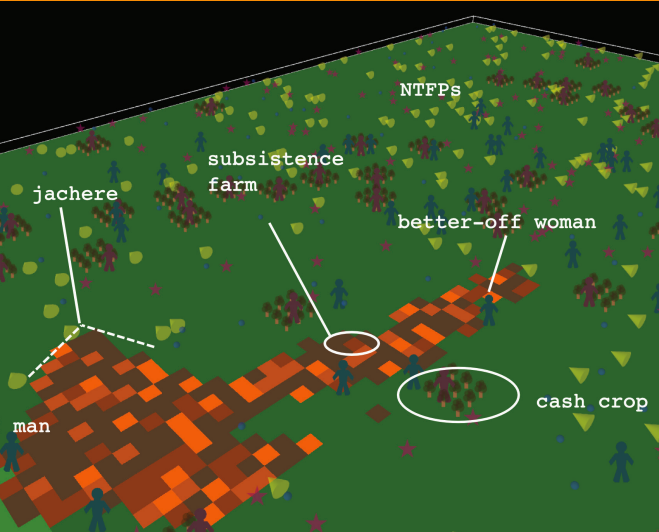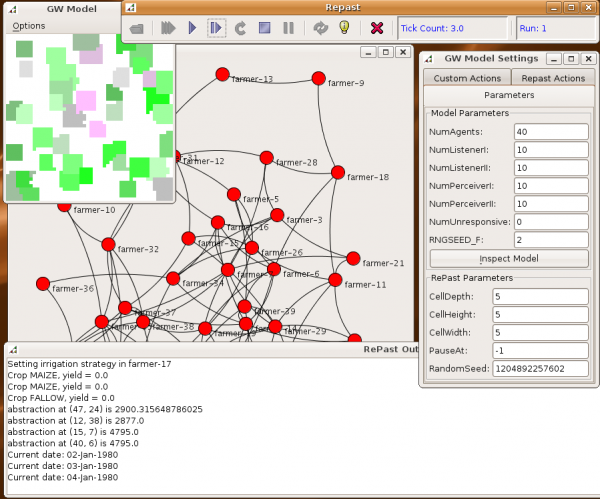Social simulation
Agent-based modelling: A tool for addressing the complexity of environment and development policy issues
This working paper introduces agent-based modelling as a potential tool for examining complex modern policy problems, and offers examples from recent applications.
Identifying Salient Drivers of Livelihood Decision-Making in the Forest Communities of Cameroon: Adding Value to Social Simulation Models
Using research from southeast Cameroon, this paper describes a participatory and collaborative process for formalising qualitative data and explains how these results can provide input to a social simulation model. Insights to provide in better understanding decision-making in the region are also explained.
Agent-based modelling
In agent based models, a society is represented by a set of agents interacting with one another and with their environment. Agents follow simple rules but can be designed to adapt their behaviour to satisfy certain goals. Thus they can be responsive to changes in the environment, such as groundwater availability in the example here.


